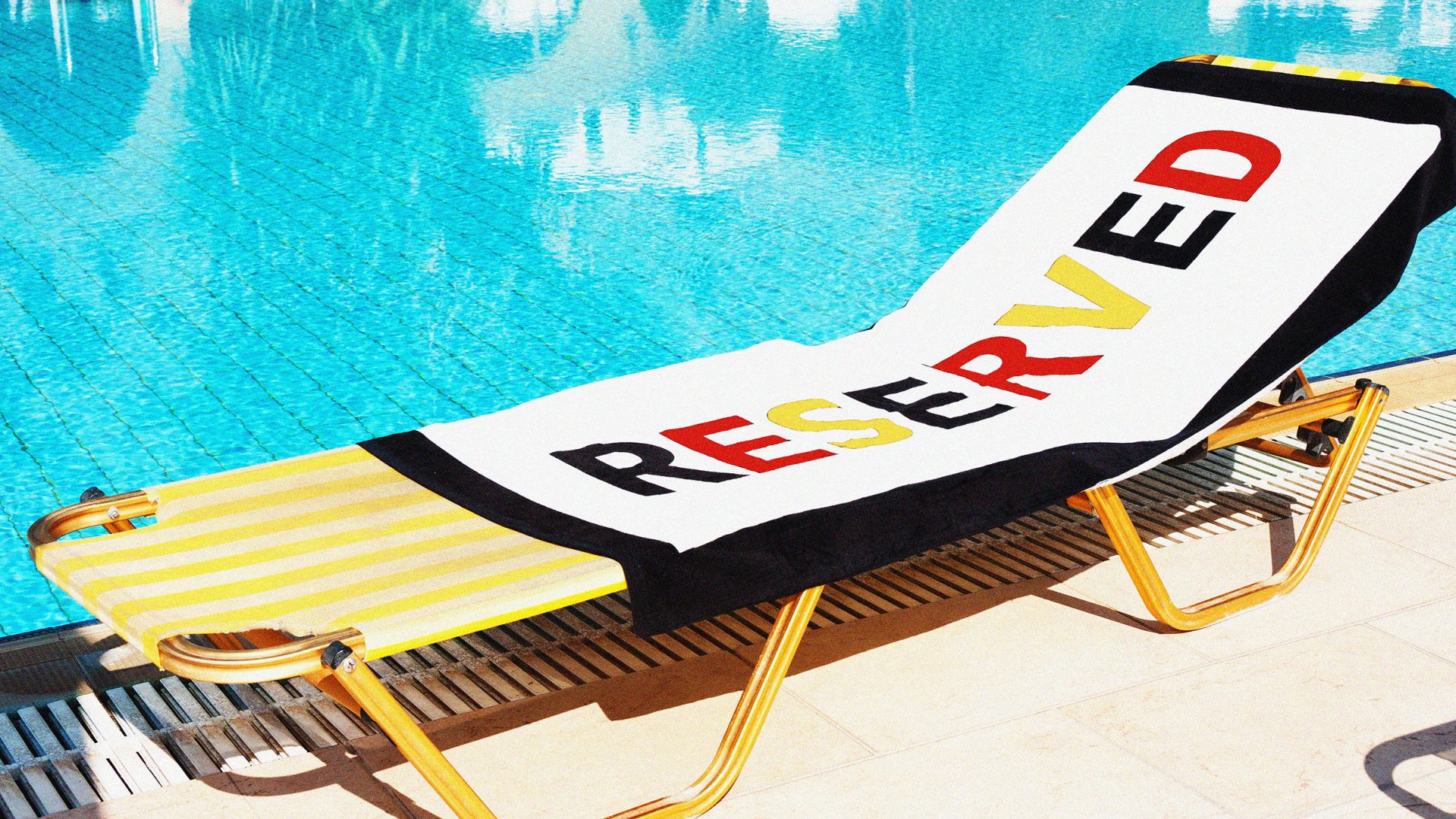Summer, sunshine, squabbling – trust the Germans to skip over trivial matters like a collapsing pension system, illegal migration or military support for Ukraine, and go straight to the real emergency: when the summer holidays should take place.
In case you hadn’t noticed, depending on which month you spend in the Med, you’ll encounter different Teutonic tribes as towel war adversaries.
Why? Well, it wouldn’t be German if it weren’t complicated. Individual states have responsibility for all things school-related, but exactly when their summer holidays fall is the result of long-term agreements among them – the result of many, many meetings.
The current schedule runs until 2030. It is based on a “rolling system” which was introduced in 1964. The idea was to avoid traffic jams and shortage of accommodation – in short: to stop all 83 million Germans descending on the Autobahn, the northern beaches or the flights to Mallorca all at once.
A worthy aim, but slightly farcical as all neighbouring countries using Germany as a drive-thru do not give a hoot about whether Hesse breaks up in June or Schleswig-Holstein in July.
But let’s look at the scheme in more detail: The Bundesländer are divided into five groups that go on holiday at roughly the same time, to ensure the population is distributed as evenly as possible. Their six-week blocks take turns each year, starting early or late: The summer break can start as early as June 20 and end as late as September 15.
However, German federalism being what it is, there are exceptions: Bavaria and Baden-Württemberg, the two southern states, have decided that rotation is for lesser Bundesländer. They always go last: August to mid-September.
Once upon a time, the justification was agricultural: kids were needed to spend their holidays helping with the harvest.
But now Germany doesn’t depend on child labour anymore and the areas around Munich and Stuttgart are much more famous for Mercedes, Porsche, Siemens, BMW and Audi than for Sauerkraut, wheat and barley. So the new line is that the southern states have long Pentecost holidays, often ending in mid-June – and it makes no sense to start summer break right after.
This cherry-picking causes envy and tension. But Bavarian premier Markus Söder (CSU) is unyielding: The dates “work for us and are firmly embedded in Bavarian culture.” This summer, he even claimed: “Our holiday rhythm is part of Bavarian DNA.” If you consider Lederhosen, Dirndl and large quantities of beer a genetic condition as well, it makes perfect sense. His party’s view – if the other states don’t like their slots, they should just shuffle among themselves – hasn’t gone down well.
North Rhine-Westphalia’s education minister had already hinted that, from 2030 onwards, there should be an equal system for all: “NRW would also like a later holiday start.” She was seconded by Lower Saxony, Thuringia, and Hamburg. And most Germans agree, too.
A recent ZDF poll shows that 62% think Bavaria and Baden-Württemberg should join the system. Only 26% support their special status. What is shifting the weight in this battle, however, a bit like the US within Nato, is the interstate financial transfer where the rich subsidise the rest. Bayern pays more than half of all the redistributed billions, with Baden-Württemberg in second place.
So the identity politics of “Mia san mia” (“we are who we are” in Bavarian) means the other states will likely have to accept the status quo, albeit grudgingly.
The latest voice to enter the debate is Hans Maier, now 94, who was Bavarian education minister back in the 1960s. He remembers the origins of the holiday system rather differently.
According to Maier, no one wanted late holidays back then – they were seen as wet and miserable (this was before climate change). When Bavaria accepted the fixed August slot, it was seen not as a privilege but a sacrifice for the national good. More importantly, Maier reminded everyone that, really, there are other issues at hand. So true. Without yet another drawn-out scheduling debate, officials might actually address Germany’s real school problems – staff shortages and cancelled lessons across the country.
Meanwhile, hats off to the rest of Europe, who somehow manage to go on holidays without such an intricate technique. Even the GDR coped, with all pupils off at the same time in July and August – despite the very limited range of destinations…
Most importantly: We may have rotating timetables, but we still get to the sunbeds before you. Have a great summer holiday!




